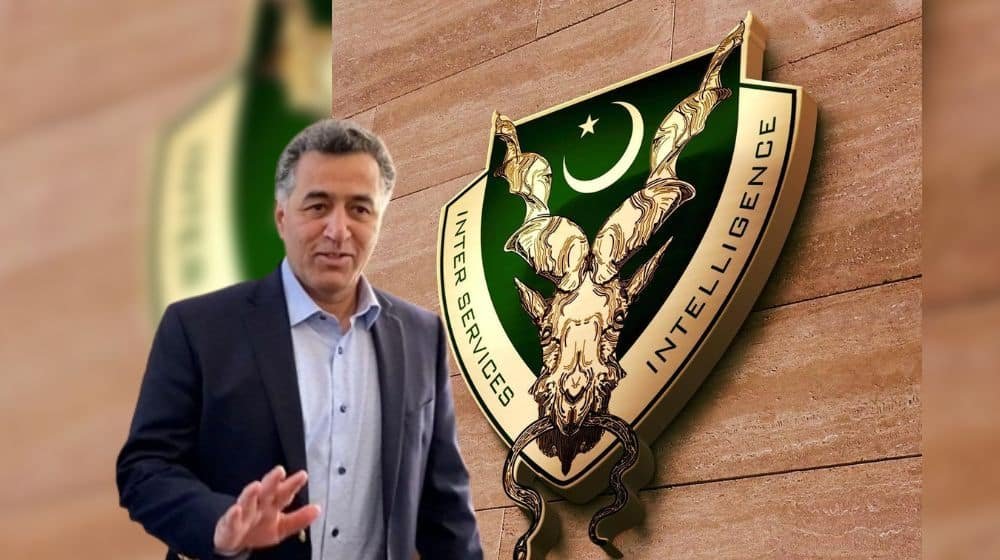
The recent arrest of former ISI Chief Faiz Hameed marks a significant event in Pakistan’s military and intelligence landscape. As the country grapples with the implications of this unprecedented action, court martial proceedings have been initiated against him. This article delves into the background of Faiz Hameed, exploring his career, pivotal appointments, and involvement in critical operations that have defined his tenure in the Inter-Services Intelligence (ISI).
Background of Faiz Hameed

Career Overview
Faiz Hameed, a distinguished officer of the Pakistan Army, has had a storied career characterized by significant contributions to national security. Rising through the ranks, he earned a reputation as a former intelligence chief known for his strategic acumen and operational expertise. His leadership capabilities were evident in various roles, culminating in his appointment as the Chief of the ISI. Throughout his career, Hameed has been involved in numerous high-stakes operations, showcasing his dedication to the Pakistan military and its objectives. His commitment to serving the nation paved the way for substantial influence within the military establishment.
Appointment as Chief of the ISI
In 2018, Faiz Hameed was appointed as Chief of the ISI, a position that placed him at the forefront of Pakistan’s intelligence apparatus. His appointment was seen as pivotal, particularly during a time of heightened geopolitical tensions. Under his leadership, the ISI undertook several significant operations, aimed at safeguarding national interests and enhancing Pakistan’s strategic posture. Hameed’s tenure was marked by close collaboration with political leadership, including Prime Minister Imran Khan, as they navigated complex security challenges. However, his leadership also came under scrutiny, leading to controversies that would eventually culminate in his arrest and subsequent court martial proceedings.
Involvement in Key Operations
As ISI Chief, Faiz Hameed was intricately involved in key operations that shaped Pakistan’s intelligence landscape. His strategic direction during these operations was aimed at countering threats to national security, including those related to terrorism and cross-border challenges. Notably, his role in the Top City case highlighted the complexities of intelligence operations in urban settings. However, his involvement has also raised questions regarding multiple violations of the Pakistan Army Act, leading to his current predicament. The court martial initiated against the former ISI Chief is a first in the country’s history, signaling a dramatic shift in how military accountability is approached in Pakistan.
Details of Arrest

Circumstances Leading to Arrest
The circumstances leading to the arrest of former ISI Chief Faiz Hameed have been shrouded in controversy and speculation. Following a series of inquiries into the operations undertaken by Pakistan Army during his tenure, concerns were raised regarding potential violations of the Pakistan Army Act. Reports suggest that these inquiries culminated in a formal investigation into actions attributed to Hameed, specifically relating to the Top City case. As scrutiny intensified, the Supreme Court of Pakistan reportedly intervened, prompting a reevaluation of his conduct as ISI Chief. Ultimately, this set the stage for the unprecedented court martial proceedings now initiated against a former intelligence chief of his stature.
Faiz Hameed Taken into Military Custody
Faiz Hameed was taken into military custody following the initiation of court martial proceedings, marking a significant event in Pakistan’s defense establishment. The arrest, executed under the provisions of the Pakistan Army Act, underscores the gravity of the allegations against him. As a former ISI Chief, Hameed’s detention not only raises questions about his legacy but also reflects the military’s commitment to accountability. Reports indicate that he may face a field general court martial, a legal process that has rarely been employed against high-ranking officials. The implications of his arrest resonate beyond Hameed himself, posing critical questions about the future of military leadership in Pakistan.
Official Statements from the Pakistan Military
In the wake of Faiz Hameed’s arrest, official statements from the Pakistan military have sought to clarify the rationale behind the court martial proceedings. Military spokespersons have emphasized that the actions taken are in accordance with the law and reflect a commitment to upholding military integrity. They have reiterated that the inquiry into Hameed’s conduct is a standard procedure when addressing multiple violations of the Pakistan Army Act. Furthermore, statements have acknowledged the importance of transparency in this process, particularly given the high-profile nature of the case involving a former intelligence chief. As the court martial progresses, the military’s handling of this unprecedented situation will be closely monitored both domestically and internationally.
Court Martial Proceedings
Initiation of Court Martial Against Former ISI Chief
The court martial proceedings against former ISI Chief Faiz Hameed have been officially initiated, marking a historic moment as it represents the first time in Pakistan’s history that such actions have been taken against a high-ranking military official. The initiation of the court martial has raised significant public interest and scrutiny regarding the protocols and legal frameworks surrounding military accountability in Pakistan. The charges leading to this unprecedented decision are rooted in the inquiry into Hameed’s conduct during his tenure as ISI Chief, particularly concerning the operations undertaken by the Pakistan Army, and the implications of those actions under the provisions of the Pakistan Army Act.
Allegations and Charges Faced
Chief Faiz Hameed faces serious allegations that include multiple violations of the Pakistan Army Act, which have emerged from an extensive inquiry into his tenure. These charges primarily revolve around his role in the controversial Top City case, where questions have been raised about the legality and ethical considerations of his decisions. As the inquiry evolved, it was found that Hameed may have acted beyond his authority, prompting the Supreme Court of Pakistan to intervene, which ultimately led to the court martial process being initiated against a former intelligence chief of his caliber. The ramifications of these allegations not only impact Faiz Hameed’s legacy but also the operational integrity of the Inter-Services Intelligence.
Implications for Faiz Hameed’s Career
The ongoing court martial proceedings for former ISI Chief Faiz Hameed carry profound implications for his career and the broader military landscape in Pakistan. If found guilty of the charges, Hameed could face severe penalties, including dismissal from service and potential imprisonment. This situation not only jeopardizes his reputation as a distinguished officer but also sets a precedent for future accountability within the ranks of the Pakistan military. Moreover, the scrutiny surrounding his actions could affect the relationship between military leadership and political entities, including Prime Minister Imran Khan, as they navigate the complexities of national security and military governance. As the court martial unfolds, the outcome will likely influence perceptions of military authority and its accountability in Pakistan’s evolving political context.
Connections to Imran Khan and Top City Case
Role of Imran Khan in the Context
Prime Minister Imran Khan’s role in the context of the arrest of former ISI Chief Faiz Hameed cannot be understated. Khan, who has been closely associated with military leadership during his tenure, had relied on Hameed for critical intelligence and operational support. The partnership between Khan and ISI Chief Faiz Hameed was pivotal in navigating the complex security landscape of Pakistan. However, as allegations of misconduct and violations of the Pakistan Army Act emerged, the relationship faced scrutiny. Khan’s administration now finds itself at a crossroads, needing to address the implications of Hameed’s actions while maintaining its connection with military institutions, which have traditionally played a significant role in Pakistan’s governance.
Details of the Top City Housing Scheme Scandal
The Top City Housing Scheme scandal, linked to former ISI Chief Faiz Hameed, has unveiled layers of controversy surrounding urban development projects in Pakistan. Allegations suggest that Hameed may have overstepped his authority in facilitating the scheme, leading to significant financial irregularities. The inquiry into the Top City case revealed instances where the provisions of the Pakistan Army Act may have been violated. As investigations progressed, the involvement of high-ranking officials, including Khan’s government, has raised questions about accountability and transparency in the military’s dealings with civilian projects. This scandal not only tarnishes Hameed’s legacy but also casts a shadow over the military’s influence in civilian affairs.
Supreme Court Involvement
The Supreme Court of Pakistan’s involvement in the court martial proceedings against former ISI Chief Faiz Hameed signifies a critical judicial response to military accountability. Following the inquiries into the Top City case, the Supreme Court ordered an investigation that ultimately led to Hameed being taken into military custody. This unprecedented intervention underscores the judiciary’s role in overseeing military conduct, particularly concerning allegations of multiple violations of the Pakistan Army Act. The court’s actions have set a precedent for future cases, emphasizing the necessity for transparency and adherence to legal frameworks within Pakistan’s military establishment. The interplay between the judiciary and military in this case will be closely watched by both legal experts and the public.
Public Reaction and Media Coverage
Response from Political Analysts
Political analysts have been vocal in their response to the arrest of former ISI Chief Faiz Hameed, emphasizing the broader implications for Pakistan’s political and military landscape. Many analysts argue that this unprecedented court martial could represent a shift toward greater accountability within the military, challenging the historical impunity often associated with high-ranking officials. Furthermore, they point out that Prime Minister Imran Khan’s administration must navigate the fallout from Hameed’s arrest carefully, as it may influence public perception and trust in government institutions. As discussions unfold, analysts continue to dissect the potential ramifications for military-civilian relations in the context of national security and governance.
Media Reports on the Proceedings
Media coverage surrounding the court martial proceedings of former ISI Chief Faiz Hameed has been extensive, reflecting the public’s keen interest in this landmark case. Reports have highlighted the details of the inquiry into the Top City case and the subsequent military custody of Hameed, focusing on allegations of violations of the Pakistan Army Act. Journalists have scrutinized the military’s actions and the role of the Supreme Court in overseeing the process, shedding light on the legal and ethical aspects of the case. As more information emerges, the media’s role in informing the public and holding institutions accountable remains crucial in shaping the narrative surrounding Hameed’s arrest.
Public Sentiment Regarding the Arrest
Public sentiment regarding the arrest of former ISI Chief Faiz Hameed is deeply divided, reflecting the complex nature of military influence in Pakistan. While some segments of society view the court martial as a necessary step towards accountability within the military, others express concern over potential political motivations behind the inquiry. The implications of Hameed’s arrest resonate among citizens who have long questioned the integrity of military leadership and its entanglements with civilian governance. As discussions unfold on social media and other platforms, the public’s reaction could shape future perceptions of both the military and the government, influencing the trajectory of Pakistan’s political landscape.





